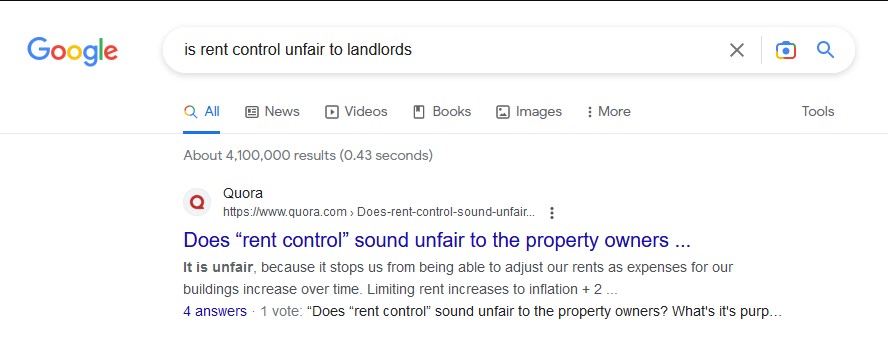Avoiding Your Own Bias
Confirmation bias
What is confirmation bias? Here is a quick definition: “The tendency to process information by looking for, or interpreting, information that is consistent with one’s existing beliefs.” Although confirmation bias is typically unintentional, it is strong and widespread, with many significant effects and real-world implications.
The impact Confirmation Bias has on your keywords
Experiments have found repeatedly that people search for evidence consistent with their current beliefs and, rather than searching through all the relevant evidence, they phrase questions to receive an answer they already agree with.
One of the primary types of confirmation bias is the biased search for information. When searching Google or any search tool, you will want to be careful that your choice of keywords does not unintentionally reflect a bias towards preexisting beliefs, or towards a particular preconceived answer.
Let’s look at an example. A search for “is rent control unfair to landlords” is likely to get results that describe rent control as unfair to landlords. The first result shows that the “answer” is it’s unfair without presenting both sides. A better search might be something like “rent control landlords”


